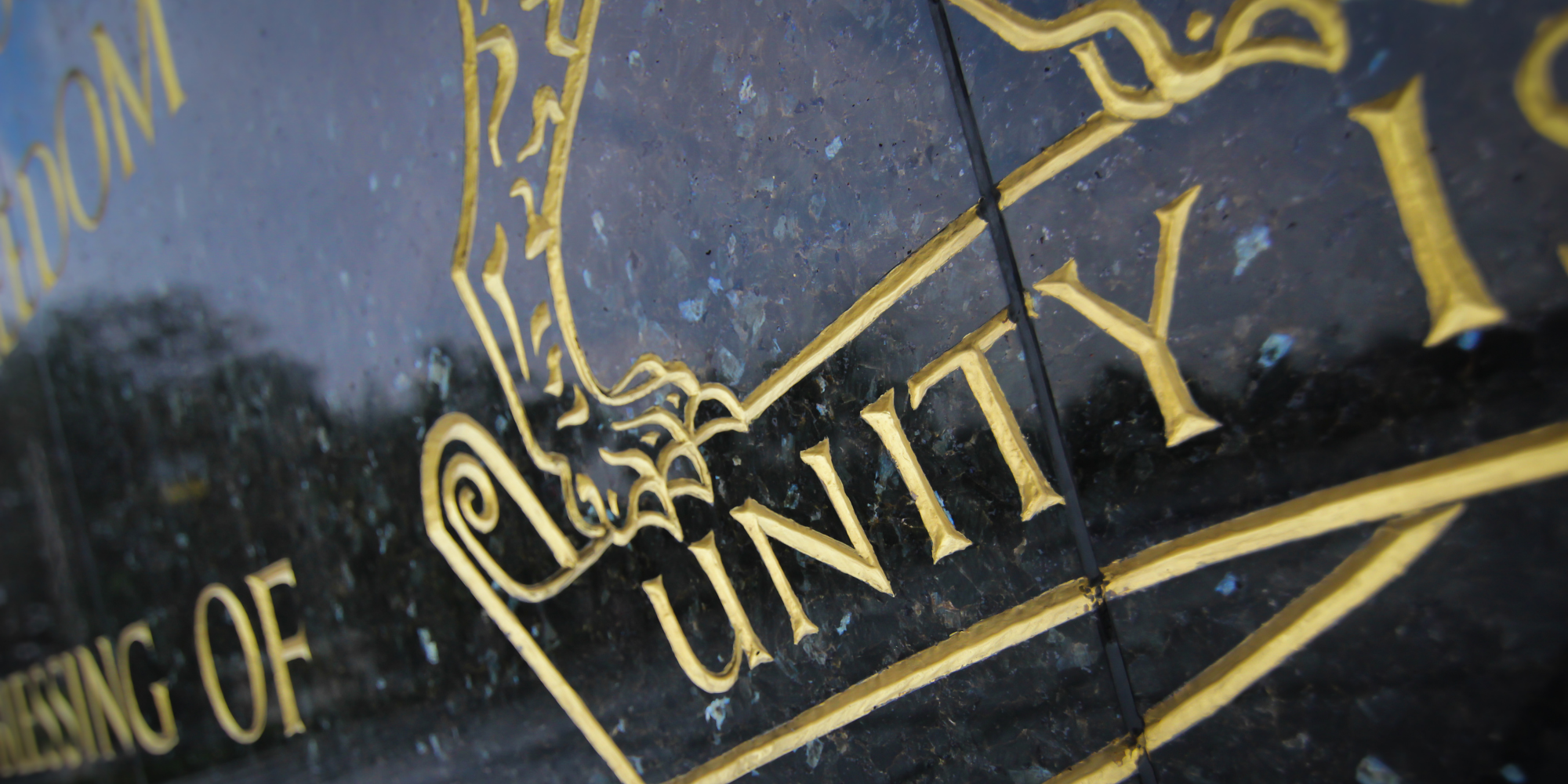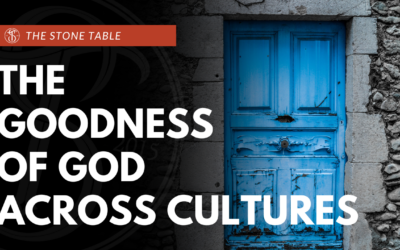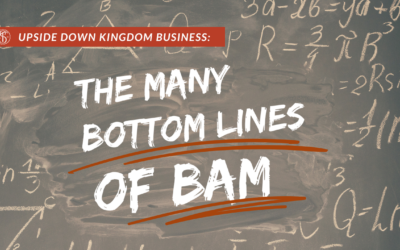The most contentious election of my life has now come and gone. Or should I say has now come and is still sort of going? We are a passionately divided nation. Even scarier, we seem to be a passionately divided Church.
We have Christians from all sides of the aisle who support their various candidates and platforms for a variety of different reasons. Some of those positions are sincere, prayed out, and thought through. Some of those positions are short-sighted, hate-filled, and idol-worshipping.
It’s a mixed bag and one that’s really hard to sift through as a believer today. And so we form tribes, make caricatures, and point fingers, even at our Christian brothers and sisters.
Everyone who voted democrat is a baby-killer.
Everyone who voted republican worships an evil orange man.
Everyone who voted democrat doesn’t see the coming Christian persecution.
Everyone who voted republican is supporting the next fascist despot.
Everyone who voted democrat is backing socialism.
Everyone who voted republican wants to keep kids in cages at our southern border.
How do we find unity as a nation in a historical moment like this? But more importantly, how do we find unity as a Church in a historical moment like this? Jesus prayed for the unity of those He called His own, going as far as to say that our unity would show the world that He is the real deal. Check out John 17:20-23:
“I am praying not only for these disciples but also for all who will ever believe in me through their message. I pray that they will all be one, just as you and I are one—as you are in me, Father, and I am in you. And may they be in us so that the world will believe you sent me.
“I have given them the glory you gave me, so they may be one as we are one. I am in them and you are in me. May they experience such perfect unity that the world will know that you sent me and that you love them as much as you love me.”
But How?
Most Christians would agree. We should be unified. But when the stakes feel this high, and the individual positions are so full of personal passion and conviction, it often feels like we are giving up non-negotiables. For many, voting for Trump would be such a violation of conscience they couldn’t live with themselves afterward. For others, a vote for Biden conjures up the same visceral reaction. It’s no longer just a standoff of competing ideologies, it’s a conflict of eternal proportions.
So how does the Church, God’s chosen vessel for displaying His resurrection Kingdom in this season of the already-but-not-yet, actually unify when both sides feel like unity would require a spiritual treason of sorts?
I think the answer lies in where we root our identity.
The Tyranny of False Identities
When I was in high school, I wanted to be a musician more than anything else in this world. At the risk of sounding arrogant, I was pretty good. So I headed off to Belmont University in Nashville Tennessee to pursue my dream in the Christian music industry.
After some unexpected twists and turns, I found myself as a music pastor at a large church with a songwriting deal and record contract with Integrity Music. I could not have drawn the picture better.
I remember sitting on the stage behind the keyboard at a large music conference, playing some of our original music, and telling the song stories alongside some of the other more accomplished Integrity artists. It was a huge moment of accomplishment and one I’m still proud of today (in all the right ways, I think).
I was finally a musician on the level I had always desired. Little did I know that just a few short months later, God was going to lead me to walk away from it all into a season of painful unknowns.
For years afterward, I wrestled with who I was. So much of my essence had become understandably wrapped up in my role and my accomplishments that when they were gone I wasn’t sure who I was anymore. I had taken something good, something beautiful God had given me, and defined myself by it. When it was gone, so was I.
Only when I realized that my ultimate purpose and calling had never changed could my true identity in Christ begin to re-emerge through new jobs and opportunities. As Christians, we are called to honor God, love our neighbor, and proclaim His name to the ends of the earth, regardless of what role we currently play in God’s Great Story. This doesn’t change with what I do for a living or which political party is in power.
I am an image-bearer of God almighty, redeemed, and made alive through the finished work of Jesus. Every other identity must bow its knee. My identity in Jesus must transcend all others.
What Does This Have to Do with Christian Unity?
Over the years, I’ve watched countless believers join me in elevating their passions to a place of ultimate self-definition in their lives. It’s these sub-identities that so often find themselves in conflict with each other, and it’s to these sub-identities that we are called to die.
Look at Jesus’ uncomfortable words in Luke 9:23-24:
“And he said to all, ‘If anyone would come after me, let him deny himself and take up his cross daily and follow me. For whoever would save his life will lose it, but whoever loses his life for my sake will save it.
–Luke 9:23-24
I love Pastor Tim Keller’s powerful explanation of what “losing your life” means in this passage:
“The word life is not the word for physical life. There’s a good Greek word for that: bios, from which we get our word biology. The Greek word that’s translated “life” is psyche, meaning ‘self.’ He’s talking—pretty radically—about the psychological, inner life. “Your old way of having an identity, of gaining a sense of self, has got to end. In a sense, you have to die to it. And I can give you a whole new identity. You’ll get a whole new true self.”
How do Christians unite in these contentious times? We die to our self-made identities, our culture-made identities, and resurrect our Christ-made identity. All other ways of defining ourselves must bow to the Lordship of Jesus.
I have infinitely more in common with a fellow Christian who votes differently than me than I do with someone I may agree with politically who has not surrendered their life to Christ. For the Church to unite in the midst of political disagreement, Jesus must become our primary identity.
Agree in the Lord
The Apostle Paul closes his letter to the Philippian Church with an interesting admonishment:
“I entreat Euodia and I entreat Syntyche to agree in the Lord.”
—Philippians 4:2
For Christians, what makes us alike—Jesus Christ—is greater than what makes us different—opinions, passions, personal preferences. Our identity in Christ must transcend all. There is room within the body of Christ to debate and disagree on temporal political matters, but when the sparring is through, our lives have been torn down and rebuilt around Jesus. We can agree in the Lord.
Please Forgive Me
On election night, I felt my emotions churning. The news reports would swing wildly from one candidate to the next, from one party to the other, and I ended up watching the returns come in until the middle of the night. I wanted my candidate to win. I wanted my platforms to prevail.
At one point, the weight of it all got so heavy, I found myself standing in the dark in my home-office repenting to Jesus. “Lord, tonight I have allowed my political identity to usurp my identity in Christ and my place in Your Kingdom. Please forgive me.” Repentance is always the way forward in the Kingdom of God.
If the Church hopes to unite in a way that shows the world who Jesus truly is, then we must repent and recommit to our primary identity in Him. Everything else must get in line and fall under. This is how we find unity again, even amidst our vast political diversity. This is how we agree in the Lord.




